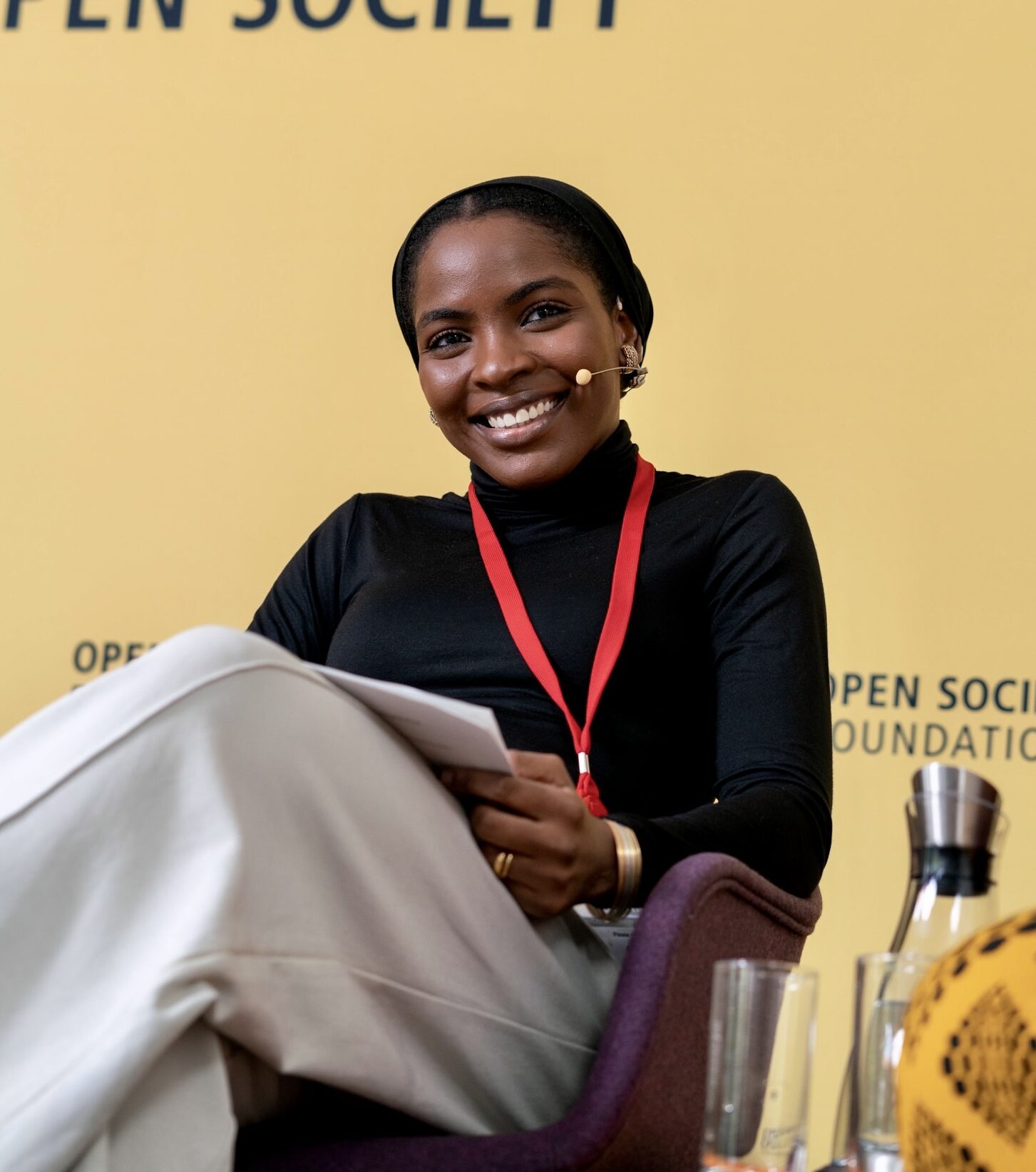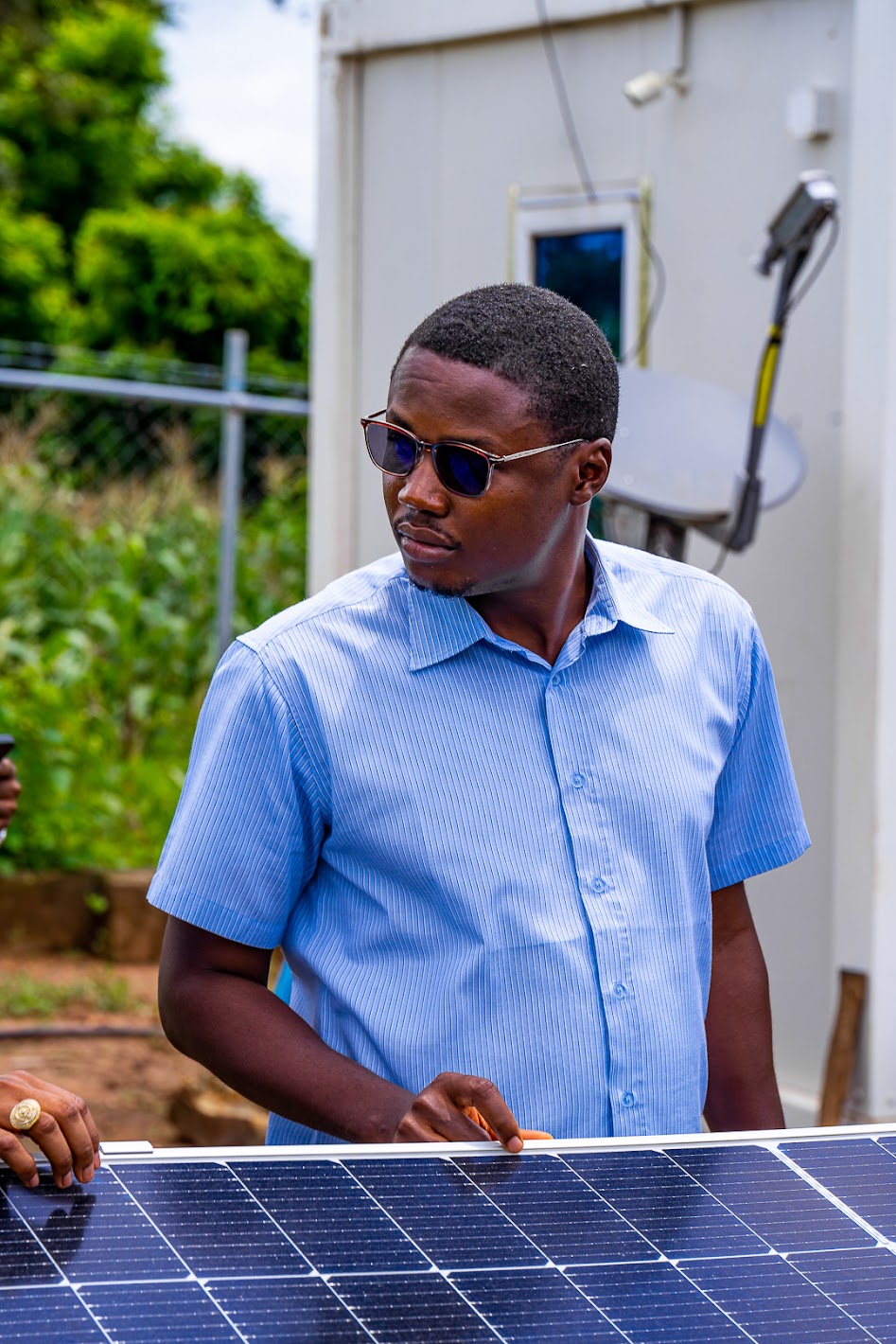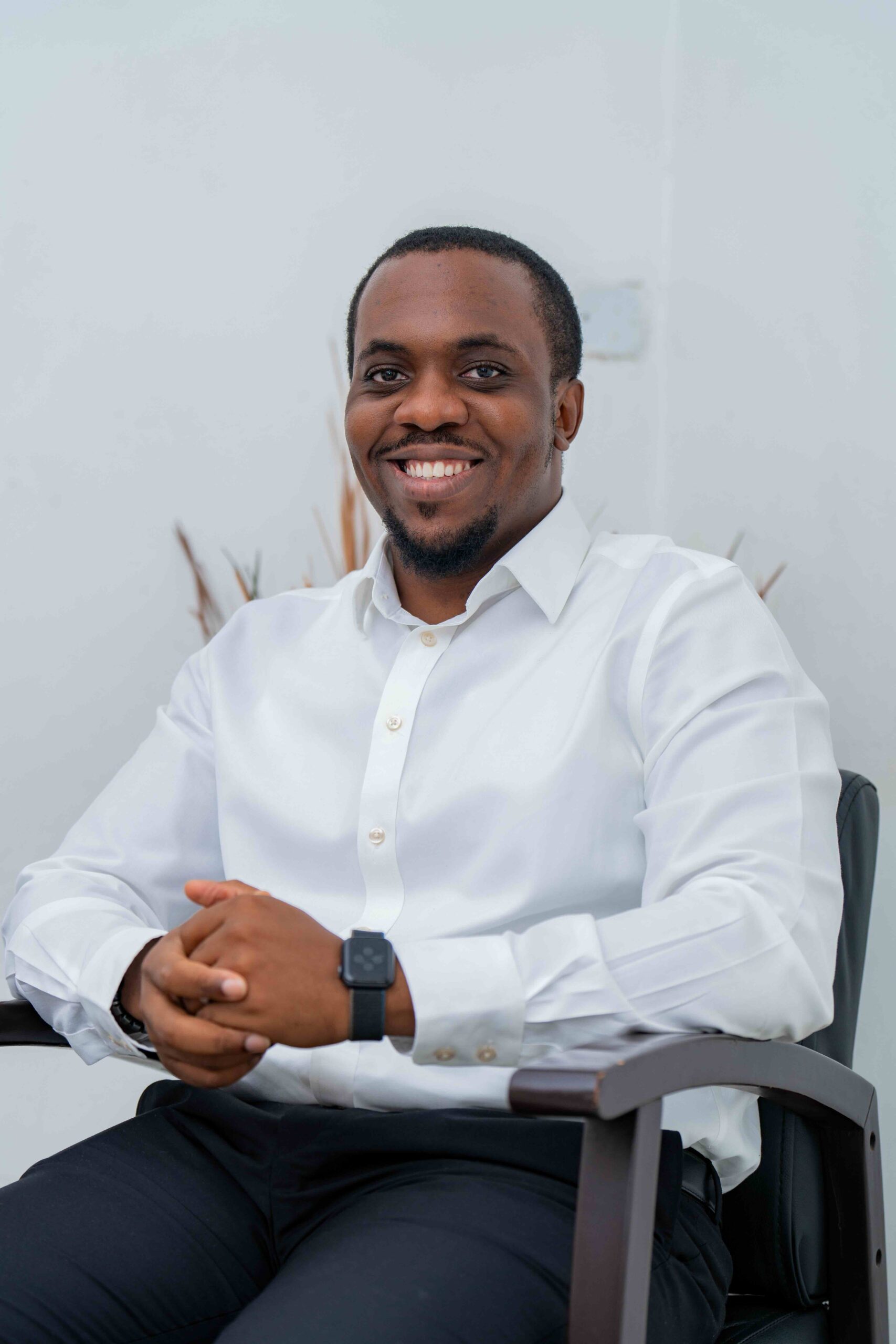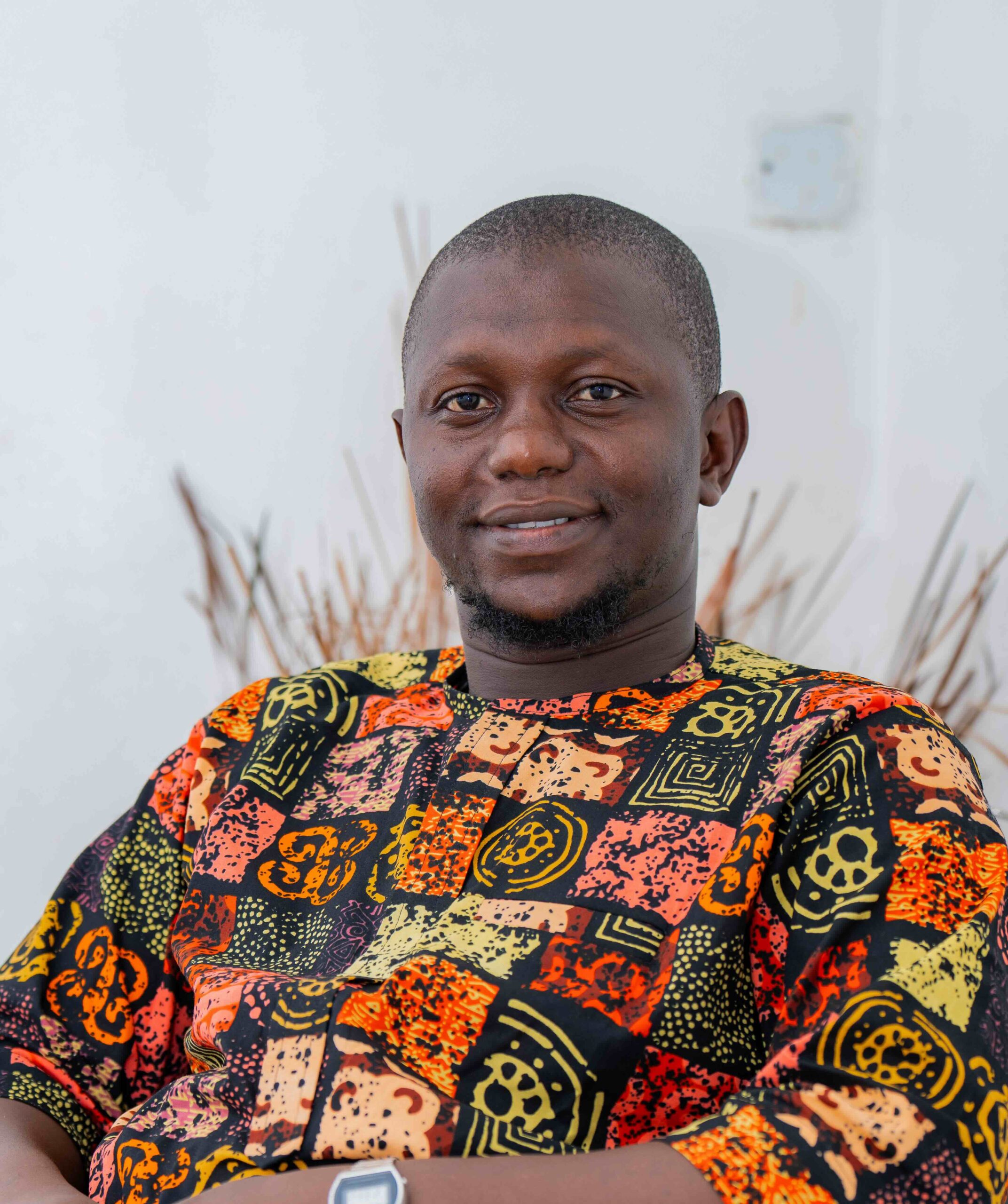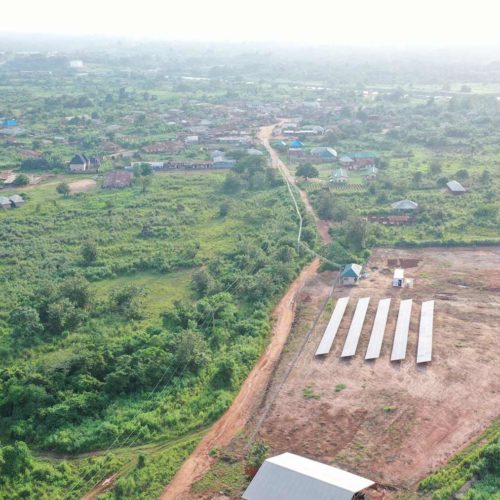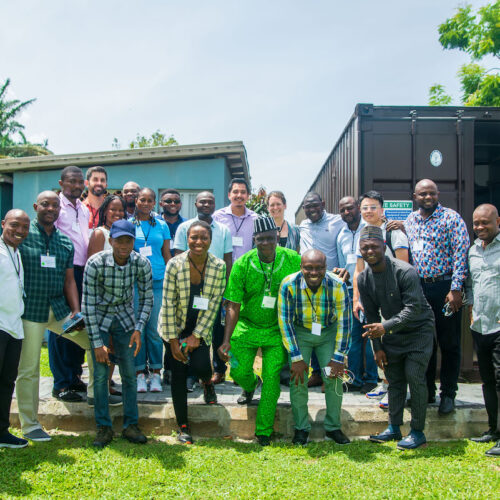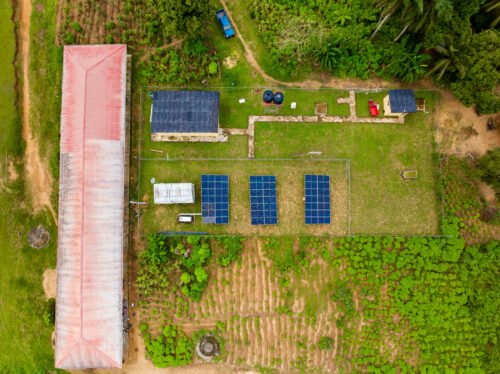
RMI in Africa: Meet Some of Our Dedicated and Passionate Nigerian Staff
RMI has been supporting Nigeria in its energy transition since 2017. This year we registered as an official entity in Africa’s largest country.
By population, Africa is the world’s fastest-growing continent, and by 2050, its headcount is predicted to double to 2.5 billion. Yet today, lack of access to reliable electricity is hampering economic development and hurting people’s health, education, livelihoods, and more. By mid-century, the challenge will be even greater.
And to perfect solutions to these challenges, Nigeria is a critical region. With more than 200 million people, Nigeria is the continent’s most populous nation. Yet practically all Nigerians lack access to steady, reliable electricity, and an estimated 65 million have no access to electricity at all. RMI has been working in Nigeria since 2017, to support clean and reliable energy, help with holistic energy planning, and enable local economic development through efficient and productive use of energy. Building on these successes, RMI has registered a local entity in Nigeria, in order to scale our work in Nigeria and across Africa.
RMI CEO Jon Creyts recently traveled to Nigeria to meet with RMI staff and many of our partners. “When we think about the need to grow the energy transition alongside the population, Africa is the logical place to start,” he says. “But there is an issue around equity in Africa, where half a billion people don’t have access to energy. And we can showcase how to provide energy access at the same time that we grow new solutions to scale here vibrantly in Africa, and that makes Africa an exciting place for us to do our work.”
 Africa Program Director Suleiman Babamanu, Managing Director Ije Okeke, and CEO Jon Creyts discussing strategy at our Nigeria workspace.
Africa Program Director Suleiman Babamanu, Managing Director Ije Okeke, and CEO Jon Creyts discussing strategy at our Nigeria workspace.
Our Nigerian staff is a group of dedicated, passionate people working hard to support Nigeria’s energy transition. Meet some of them below.
Access to reliable and affordable energy is essential for human development, and access to clean energy is essential for the growth and industrialization of Nigeria and other emerging economies.
Fola Aminu, Senior Associate
Fola has always been fascinated by the power of electricity and how it can transform people’s lives. He is currently working with Nigerian distribution utilities to help develop 40 distributed energy resource projects and increase the amount of clean, renewable energy in Africa. Fola finds great satisfaction in the positive impact his work has: “Whether it is helping a corporate entity save on diesel costs or witnessing the impact of a minigrid-powered cold room on the lives of fishers who can now sell their catch at a better price, clean renewable energy has an incredible impact on the lives of families and businesses.”
We think of energy as a catalyst. It’s not just energy, but everything that comes with the benefit of having energy access. The potential for energy to transform lives is something that I wake up every morning excited to be part of.
Suleiman Babamanu, Africa Program Director
Suleiman was working at Nigeria’s Rural Electrification Agency (REA) when he met the RMI team in 2017. He had been looking at how to improve on, commercialize, and scale minigrids in Nigeria. “I really respected the expertise and depth of knowledge that the RMI team brought to the table on minigrid development,” he says. RMI partnered with REA, and in 2022 Suleiman wanted to make a change and join a global organization that was looking at the energy transition more holistically. So he became the director of RMI’s Africa Program where he leads RMI’s growing portfolio focused on pushing the energy transition from polluting and expensive energy infrastructure to clean, affordable, and resilient energy resources.
I love that I am making a difference in people’s lives in my country and solving challenges around rural economic development.
Habiba Daggash, Senior Associate
Having grown up in Nigeria where she witnessed widespread energy poverty, Habiba wanted to use her career to help address challenges in the energy sector from an early age. This led to her attaining a PhD in low-carbon energy systems planning. She now works on RMI’s Energizing Agriculture Program supporting rural communities to build businesses powered by solar minigrids in the agriculture sector.
We’re not just developing solutions, we’re shaping thought leadership in the productive use of energy field. By creating scalable business models, we’re actively combating energy poverty and empowering communities.
Ayodeji (Deji) Ojo, Associate
Deji’s interest in working on climate issues came from witnessing firsthand the vulnerability of resource-poor families to climate change and the risk of losing their livelihoods. He now works with partners from the energy and agriculture sectors to improve the use of renewable power in rural areas and helping communities and individuals build climate resilience and prioritize climate-smart agricultural practices. This includes leading pilot teams to use minigrid electricity for agricultural processing and deploying electric two-wheelers for farm logistics.
“What excites me most is seeing the joy on customers’ faces when these solutions are piloted, and they realize there’s a viable way out of the tunnel of darkness.”
Wayne Omonuwa, Nigeria Energy Lead
Wayne is the energy lead in Nigeria, working with the private sector, government, and utilities to come up with innovative business models that can help provide reliable electricity to customers and lead to reform in the electricity market. Growing up in Nigeria, he knew of many entities and communities that didn’t have access to electricity. Wayne was one of RMI Nigeria’s first team members and joined RMI in 2019 because he says “RMI was one of the few organizations that was really thinking about the best way we can improve supply to customers.”
We don’t import solutions or do a one-size-fits-all solution. Each project comes with its own dynamics. Having to think through how to best meet the solution for the current challenge gets me excited every day.
Ridwan Zubair, Associate
Before coming to RMI, Ridwan, a system design engineer based in Lagos, had been working as a solar developer. However, he says, “We often saw our projects as competition between other developers and not from the position of making the world a better place in terms of sustainability.” So he joined RMI because of the impact and contribution he could make. Ridwan currently works with utilities, regulators, and planners to energize more communities, and engages with community members and leaders in his work to support community-led solar minigrids.


